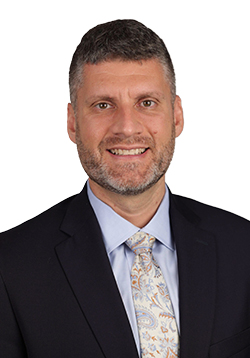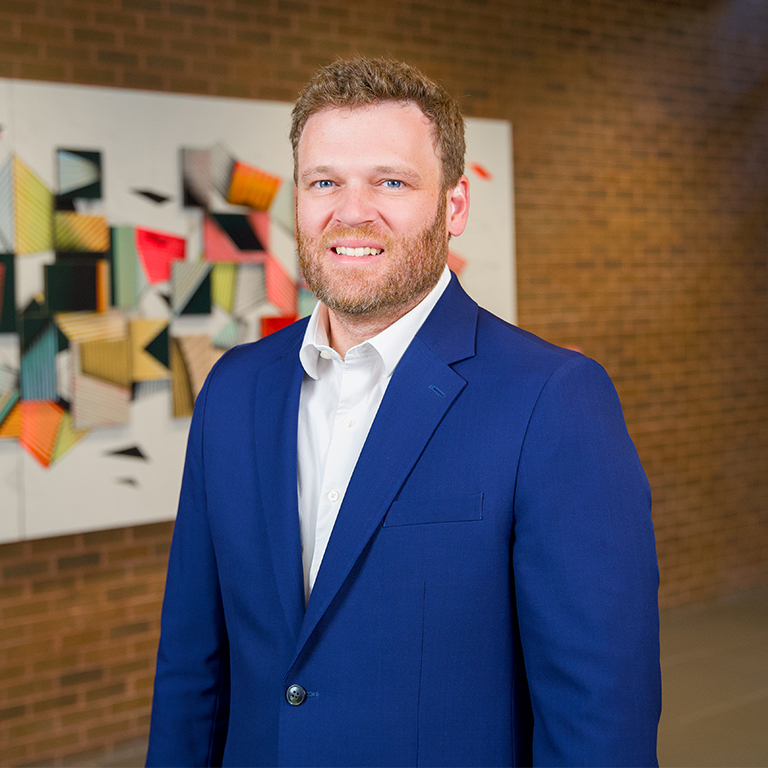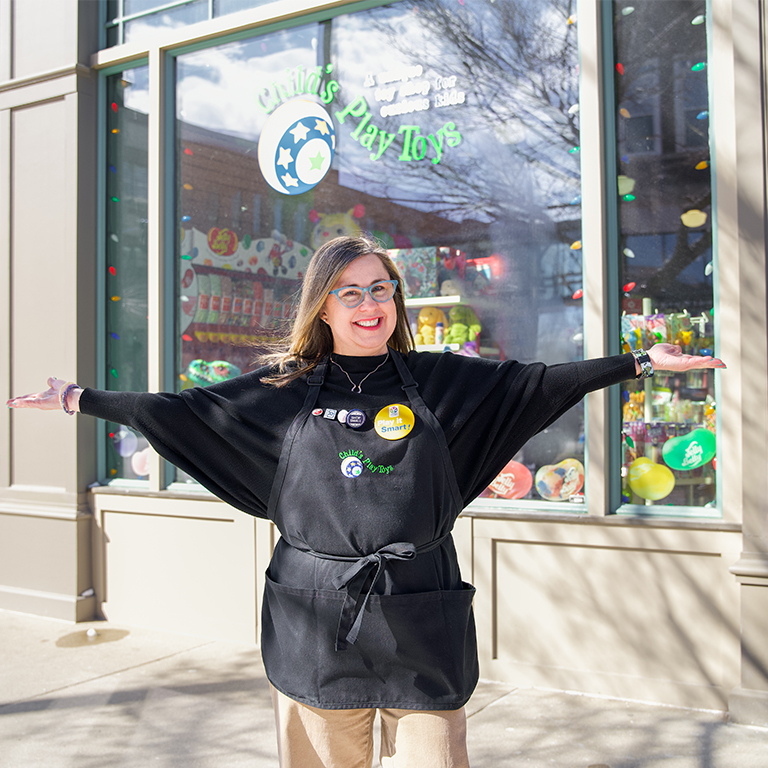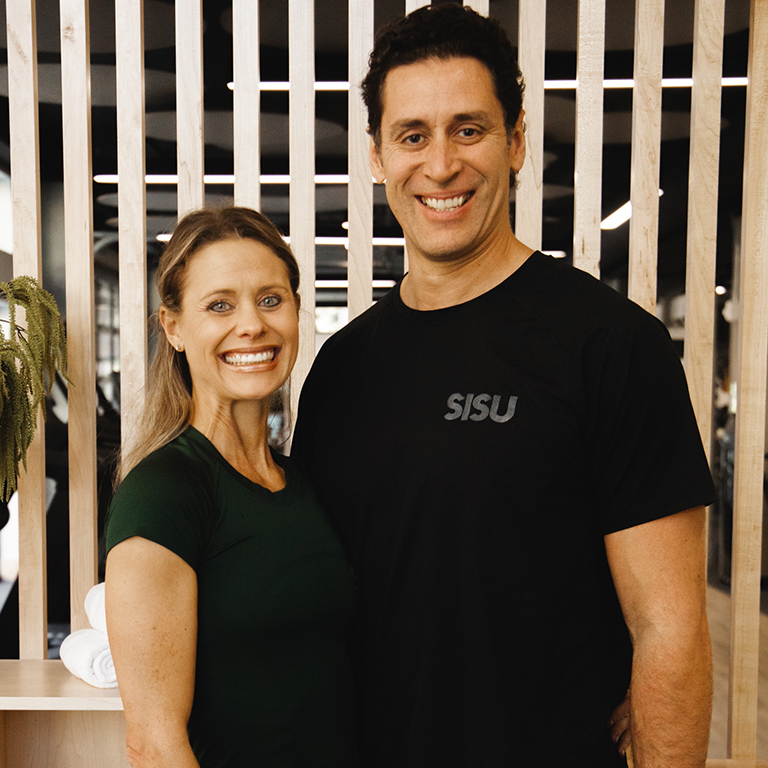
If Michael and Jean Bender were to sum up their money story, it would be that opposites attract.
He was raised to be a spender, while she was raised to be so frugal that a fried shrimp basket felt like a splurge.
Michael, the founder of Bender Companies, and Jean, a lawyer at Davenport Evans, recently joined our podcast, Common Cents on the Prairie™, for our second annual live recording event.
You can read the highlights from their conversation with me below — and when you’re ready, you can watch the full episode on YouTube.
Live with Michael and Jean Bender
Adam: Let’s start this conversation how I like to start all these conversations: let’s learn about your background with money and how you were raised. Jean, do you want to kick us off?
Jean: The thing that popped to my mind was that my dad was very, very, very frugal with his money. I immediately remembered that I was young — 5 or 6 — and our neighbors invited us to dinner, which was a big deal.
They were insistent that I could have anything I wanted. I think we were at the bowling alley in Yankton, where I was raised, and I was like, “Really? Anything?”
So, I ordered the fried shrimp basket. I’m sure it was the most expensive thing on the menu. And I got in so much trouble, because if somebody’s buying your dinner, I learned quickly, you should not buy the most expensive thing on the menu.
Adam: Where did your dad’s frugality come from, do you think?
Jean: He was a product of the Depression, and he was the youngest of a number of kids. And his dad kind of left when they were growing up, so they didn’t have very much money.
Adam: Michael, how about you?
Michael: Well, you know what they say: opposites attract. I was raised in Dallas, Texas. My parents got divorced when I was 10, so there was a period where we did struggle.
But my mom remarried. She married an attorney that actually represented her in the divorce.
He was a bit more of a spender. He was a little bit of a savior for our family, and so he raised me. But he raised me to be more flamboyant and spending a little bit more.
Adam: If you’re the spender, and, Jean, you’re the saver, have you met in the middle? How’s that worked?
Jean: We respect each other. There are times where we have conversations about things, and sometimes that means I will be more willing to take some risk. His business involves some risk.
And there are times, like on our honeymoon, when he decided that maybe we should buy this painting that cost about three times what we were making. We had a conversation and decided maybe not.
Michael: She did talk me off the ledge on that one. But there are times, mostly a lot of the discussion would be around real estate investments; they require me to sign a personal guarantee.
The guarantees are what make you pucker up a little bit. So, we’ve had discussions around investments more than the day-to-day stuff.
The Bender Companies story
Adam: One of the things that stood out to me when we got together the first time is, Michael, your story about living through the boom and then bust of Texas real estate. I remember you telling me that was one of the most impactful, and probably helpful, things that could have happened to you.
Michael: It was a real moment in my career. A real epiphany. I was very young — started at 22, straight commission in commercial real estate in Dallas.
By 24, I was fortunate enough to have sold a $60 million transaction. That bought a car, a house, and a diamond ring.
I remember my dad pulling me aside and saying, “Son, this is not real. You’re not as smart as you think you are.” Of course, I thought I was.
That was 1983, ’84. By ’87, ’88, the whole Texas economy really collapsed. And what it taught me was, debt is not your friend.
If you’re going to take on debt for risk, it better be well-capitalized and strategically thought out. Really, it was an MBA that I got through hard knocks, so to speak. That’s partly what drove us up here, when we moved here.
We wanted to get to a more stable environment for my career. When we moved here in 1992, we really didn’t know what to expect. Jean had her family in Yankton, but we didn’t have any contacts here in Sioux Falls.
So, we both were willing to professionally make what we thought would be sacrifices. In reality, it was just the opposite. The community embraced and warmly welcomed us. Our professional careers grew, and then our family started growing, so it was the best move we ever made.
Adam: Jean, you were an attorney and had more of a steady income. How did you feel when Michael broke out on his own and started his own business?
Jean: I always thought it was probably inevitable. Michael, when we lived in Texas, had started his own business for a while, and then the economy went south.
But he always has liked to sink or swim on his own. So, I wasn’t surprised. I don’t remember being particularly nervous about it; I had a lot of faith.
Michael: I think I was more nervous. The fear of failure is powerful. You have to get over that fear and just say, “I’m not going to worry about failing. I’m going to worry about succeeding.”
Adam: How long was it until you felt like, “You know what? I might be able to make it work.”
Michael: It was a couple years that we didn’t take any money out of the business, and we funded it. We were growing, and we were getting good market share.
We started the business in January of 1997, so it was probably late ’98 that I started getting Christmas cards in the mail. I’m like, “Huh. If the business community here in Sioux Falls thinks enough to put me on a Christmas list, maybe we will survive. Maybe we’re legitimate.”
It was one of those epiphanies, and I didn’t worry any longer that we weren’t going to make it. Until ’08 and ’09.
Adam: That’s a great segue. As you sit here today and think about your business journey, is ’08, ’09 the struggle that comes to mind first and foremost?
Michael: Yeah, that was a turning point. Our firm lost about 70% of our revenue, and the transaction volume just dropped to nothing.
As a result, we rolled up our sleeves and said, “How are we going to continue to service clients and put clients ahead of our interest?” It required a sacrifice on our behalf and our family’s behalf, but even some of my partners and the staff.
Everybody had to pitch in. We went back to cleaning our office ourselves. For real estate, one of the big marketing parts are the signs you see all over town; we started installing our own signs to save money. Anywhere we could save money, we did.
Adam: You’ve since sold that business. I think a common misconception is that you’re retired; that’s actually not true.
Michael: Right. I always wanted to view our firm more like a law firm. I wanted to have partners and a succession plan so it wasn’t just one guy.
So, early on, I offered partnership interest to the folks that I deemed partner-worthy, if you will. I sold the majority interest of that business to three main partners — I already had a partner at the time — and it’s really a testimony to them.
They wanted me to retain some of the ownership. They wanted me to stay and be involved. So, the reality is that it’s been easier than I thought it would be.
I’ve got great partners, and they just took it and they’ve run with it. We’ve grown market share since ’21 when I made that sale, so I’m really fortunate.
How we money
Adam: What do you appreciate about each other’s approach to money and risk?
Michael: As you can tell, I’m much more shoot-by-the-hip. I’ve been so fortunate to have Jean calm me down and say, “Let’s think through the issues. Let’s talk about this. Timing’s not an issue here.”
Jean: I would say just the opposite. You go to law school and they teach you how to see risk in almost everything. And, I mean, that’s my natural bent anyway.
I really appreciate that Michael sees possibilities and is willing to take risk. We certainly have benefited from that greatly, and I think that is a really good balance.
For the full details on Michael and Jean’s money story, watch the episode on YouTube or listen on your favorite podcast streaming app.
And if you would like to discuss your own financial situation with a professional, reach out to our team at First National Wealth Management; we’d be happy to help!
Any comments, insights, or strategies discussed in this article are intended to be general in nature and, therefore, may not be suitable for you and your situation, whatever that may be. Before acting on anything written here, please consult with your attorney, CPA, and/or your financial advisor.









